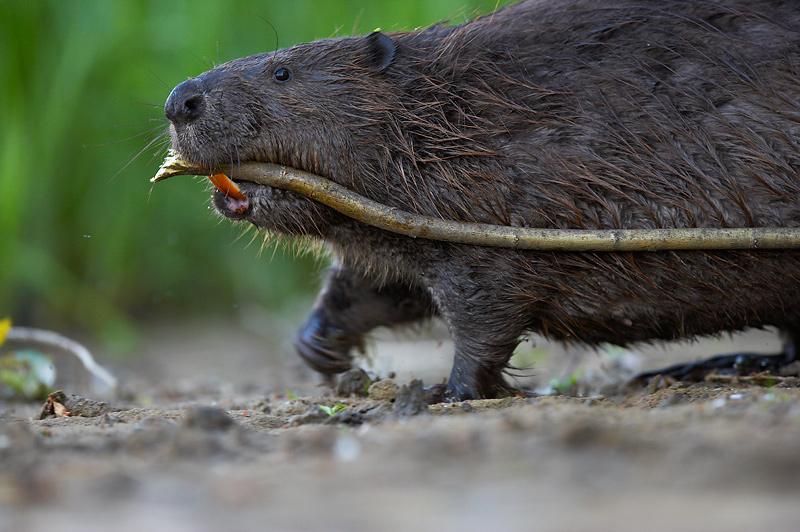Farming industry concern as beavers return to Forest of Dean

Beavers are to return to the Forest of Dean under plans to reduce flood risk in the area, Defra Secretary Michael Gove has announced.
After a beaver absence of 400 years in the area, Mr Gove has approved plans to release a family of two adult beavers and two kits into a 16-acre enclosure on Greathough Brook.
It is hoped they will use their natural dam-building skills to reduce the risk of flooding in an area above the village of Lydbrook, which is frequently impacted by flooding when heavy rain ensues.
Mr Gove said: "The beaver has a special place in English heritage and the Forest of Dean proposal is a fantastic opportunity to help bring this iconic species back to the countryside 400 years after it was driven to extinction.
"The community of Lydbrook has shown tremendous support for this proposal and the beavers are widely believed to be a welcome addition to local wildlife.
"The project is an example of the wider approach we are taking to enhance biodiversity, become the first generation to leave the environment in a better state for future generations and deliver on our plans for a Green Brexit."
'Proper management'
However, farmers have expressed concern about the increasing amount of beaver numbers in the UK.
Farming union NFU Scotland has insisted that 'proper management' of the species is fundamental in order to avoid impact on agriculture. Some farmers have warned of considerable damage to farmland and the spread of disease.
The Scottish government has also announced that beavers will be reintroduced in Scotland and will receive a special protected status.
Scotland's Environment Secretary Roseanna Cunningham said the species will have to be 'actively managed', in line with practices in other European countries.
But NFU Scotland and other land management and environmental organisations wrote a joint letter to Scotland's Ms Cunningham earlier this year to set out broad principles and key components of an appropriate management regime.
Rob Livesey, NFU Scotland’s Vice President previously commented about the situation, saying beavers must be 'appropriately managed' to minimise the risk of unacceptable impacts on agriculture.
He said it is a view that is shared by many within the conservation community.
He continued: “It is essential that Scottish agriculture is not negatively affected by this decision.”
NFUS said it is sceptical that beavers can be excluded from areas of highly productive farmland that are heavily reliant on complex drainage systems and flood banks.








